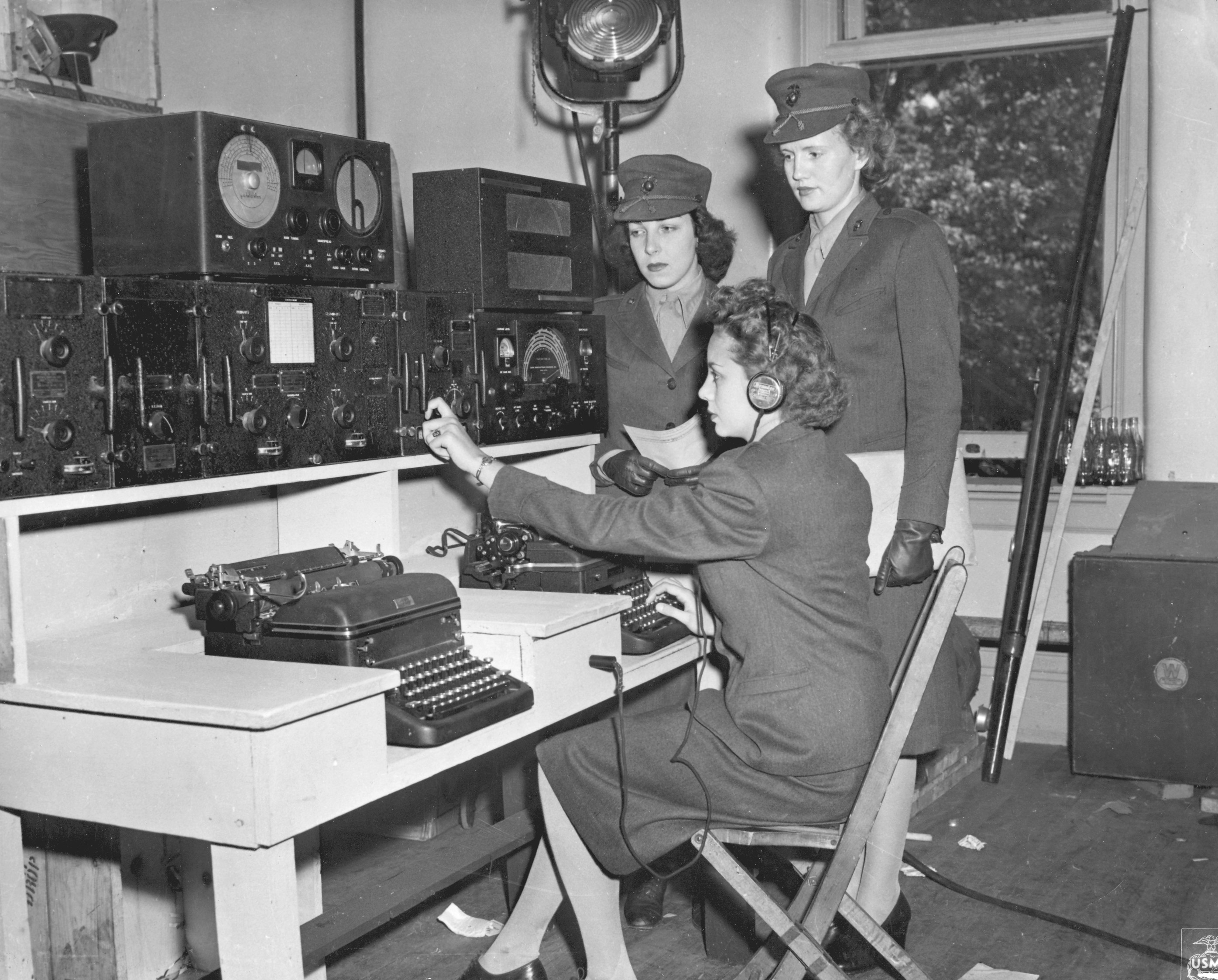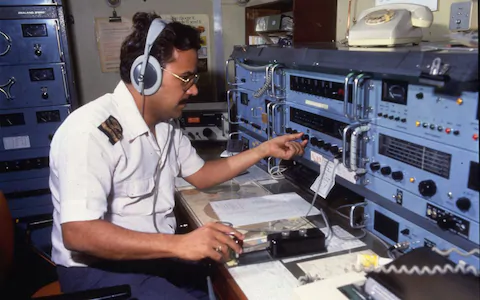-- --- .-. ... . -.-. --- -.. .: Morse Code
Military Communication through Dits and Dahs

Women of World War II (Bedell-Burke)
Impact
"When we change the way we communicate, we change society."- Clay Shirky
Morse Code has impacted the world in multiple ways, including militarily, navally, technologically, and socially.
"Morse Code allowed for ships at sea to communicate over long distances using large lights. Morse Code was especially pivotal during the second World War because it greatly improved the speed of communication. Naval war ships were able to communicate with their bases and provide critical information to each other. War planes also used Morse Code to detail locations for enemy ships, bases, and troops and relay them back to headquarters. Morse Code is still widely recognized, even if it is not as widely used as it once was. Morse code is still popular among amateur radio enthusiasts, although proficiency in Morse Code is no longer a requirement to obtain your amateur radio license" (Treasure).

Morse Code Communication System for Cargo Ships (Archive)

("Morse Code Skill")
"After the Titanic sank in 1912, an international agreement required some ships to assign a person to listen for radio distress signals at all times. That same agreement designated “SOS” - “dot-dot-dot dash-dash-dash dot-dot-dot” - as the international distress signal, not as an abbreviation for anything but because it was a simple pattern that was easy to remember and transmit. The Coast Guard discontinued monitoring in 1995. The requirement that ships monitor for distress signals was removed in 1999, though the U.S. Navy still teaches at least some sailors to read, send, and receive Morse Code" (King).

Tim Robinson (Keate)
"Tim Robinson was walking along Seatown beach near Bridport, Dorset, where he was on holiday, when he slipped on some seaweed and broke his leg. Mr Robinson, a sergeant in the Mercian Regiment of the Territorial Army, did not have his mobile phone with him, so he used a flashlight to make SOS signals through the misty weather to his wife, Paula. After doing this three times he was relieved when a light in the distance made a similar signal in response. Mr Robinson, who has been on two tours of Afghanistan and one in Iraq, said the incident was 'dramatic' " (Frodsham).
Morse Code saved his life, and without it, he could have been stranded all night, or much longer (Frodsham).
"I must have crawled for three-quarters-of-a-mile when I got to a mile-and-a-quarter from Seatown and started flashing my torch."-Tim Robinson
There is no question that Morse Code has played an important communication role in history. Militarily, every aspect of war was improved by greater communication through Morse Code. Morse Code saved many lives and impacted many situations, wars, and outcomes. Navally, ships were able to communicate with one another over great distances, providing information about weather or trouble at sea. For the purpose of communicating immediately on a personal level over long distances, the social impact was also felt. Technologically speaking, Morse Code was the beginning of a communication revolution that would include the telegraph, the telephone, radio, and eventually the internet.